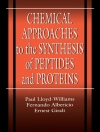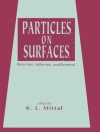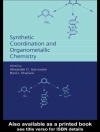In 'Experiments upon Magnesia Alba, Quicklime, and some other Alcaline Substances, ’ Joseph Black meticulously investigates the chemical properties and reactions of various alkaline compounds. The text is crafted in a clear and methodical style, reflecting the empirical rigor of the 18th-century scientific revolution. Black’s experiments not only illuminate the unique behaviors of magnesia alba and quicklime but also contribute significantly to the burgeoning field of chemistry, solidifying the importance of precise measurement and observation in scientific experimentation. With its systematic approach, the book provides a foundational understanding of the differences between the alkalies and examines their implications for contemporary chemical theory. Joseph Black, a prominent Scottish physician and chemist, was deeply influenced by the scientific discourse of his time, particularly through his studies under notable figures such as the chemist William Cullen. His keen interest in thermal properties and the understanding of gases paved the way for his groundbreaking investigations into alkaline substances. Black’s research not only expanded the chemical knowledge of his era but also laid the groundwork for later advancements in the study of acids and bases. This book is highly recommended for readers interested in the origins of modern chemistry and the historical context of scientific discovery. Black’s work serves as a critical reference for students and scholars alike, illustrating the meticulous nature of scientific inquiry and the transformative power of basic research.
O autorze
Joseph Black was a distinguished 18th-century physician and chemist, renowned for his seminal work in the field of chemistry. Born on April 16, 1728, in Bordeaux, France, Black later moved to Scotland where he received his education. He is perhaps most famous for his meticulous research documented in 'Experiments upon magnesia alba, Quicklime, and some other Alkaline Substances’ (1756), which laid the foundational principles for what would become modern inorganic chemistry. Black’s research was pivotal in distinguishing magnesia from lime and in describing the properties of fixed air (carbon dioxide), which he discovered in the process of his experiments. His work not only reflected the rigor of scientific inquiry that characterized the Enlightenment but also contributed to advances in medicine as well as industrial and laboratory processes. Black’s intellectual contributions extend beyond a single book; his teaching and mentorship influenced a generation of scientists, including his famous pupil, James Watt, renowned for his work on the steam engine. He was appointed professor at the University of Glasgow and later the University of Edinburgh, positions he used to further the study of chemistry. Joseph Black’s literary style in scientific presentation is marked by clarity, conciseness, and a systematic approach to complex phenomena, underscoring his stature as a pivotal figure in the annals of science.












